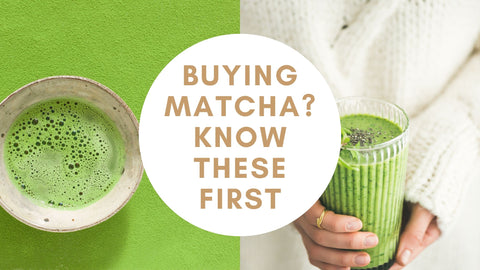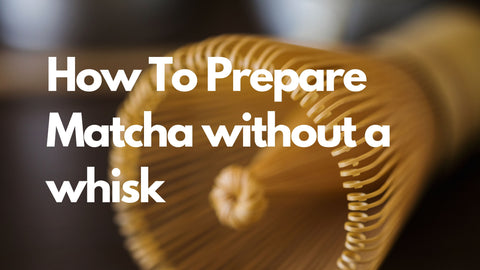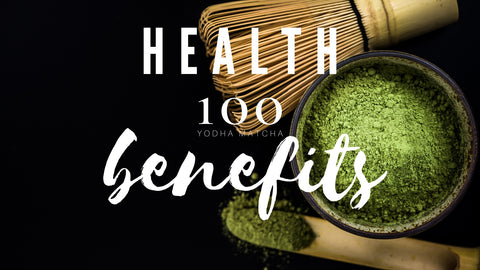Can matcha boost immunity?
How to Boost Your Immune System with Matcha
Matcha is one of the best foods to boost immunity, but why? Read on to discover the benefits of the deep green tea, including how it helps your body fight off viruses and much, much more.
What is Your Immune System? What Does it Do?
Think of your immune system as your personal biological army. It keeps an eye on the inside of your body, scanning for anything unusual. When it spots something it doesn’t like – germs or viruses, for example – it springs into action, fighting the rogue predator with all its might until the invader is defeated.
The problem is, these days our immune system is often a bit tired. Factors such as stress, poor nutrition and lack of sleep – all common in 21st century life – deplete our immune system, leaving us more vulnerable to infections such as the coronavirus outbreak we’re experiencing at the moment. Fortunately, there are ways to give it a boost – and a daily dose of the organic ceremonial matcha that we provide is one of the best ways to keep your immune system fighting fit. There’s science to back it up, too – here’s a simple explanation.
Antioxidants – Helping Your Body Ward Off Infection
You’ve probably heard of these. They’re nutrients that boost immunity and protect our cells from damage by free radicals that are formed by environmental factors such as cigarette smoke, pollution and pesticides. Green tea is rich in a type of antioxidant called catechins. Research shows that catechins combat diseases including cancer, Alzheimer’s and cardiovascular issues. Matcha – if it’s the good stuff – has much higher levels of catechins than regular green tea. But why?
It’s all down to how it’s grown. Matcha and green tea both come from the same plant, Camellia sinensis, but matcha bushes are grown in the shade, which intensifies the level of nutrients. After harvesting, the leaves are ground into a powder, so when you brew a cup you’re taking in the whole leaf. With normal green tea, you’re just drinking the infusion.
You do need to choose your matcha carefully, though. Inferior types have much lower levels of catechins. Luckily, they’re easy to spot by their dull color and harsh, bitter flavor that puts some people off the drink altogether. The finest growers are able to cultivate their plants to yield ultra-high levels of nutrients – you can tell by the smooth, mellow flavor and vivid shade of green that doesn’t need an Instagram filter.
Here at Yodha Matcha, we’re proud to support the very finest tea masters who nurture their plants at the foothills of Uji in the Kyoto region of Japan – the country’s cultural center. Upon harvesting, they grind it into fine powder in the traditional way, using stones. The quality of our ceremonial grade matcha shines through in the luminous color, delicate flavor and soothing quality.
How Matcha Helps Your Body Produce T-cells
T-cells are part of what’s called the Adaptive branch of your immune system. Essentially, phase one is the Innate branch, with its powerful white blood cells. Phase two is where the slower, more specific Adaptive comes in, dispatching T-cells alongside antibodies to fight invading pathogens. T-cells also reduce inflammation in the body.
Matcha supports your body in this because it’s high in the catechin EGCG, the main function of which is to assist in producing those helpful T-cells. EGCG is linked to fending off viruses, cancer and heart disease. And according to the US National Cancer Institute, it may also protect your body’s cells from DNA damage.
Top quality matcha like ours contains very high levels of EGCG – one study shows some matchas have up to five times more than everyday green tea. Freshly brewed matcha contains the most nutrients – swapping your morning espresso for a shot of matcha is a great gift to your body and you’ll save money making it at home instead of heading to the coffee shop. Click here for a quick lesson on how to make matcha tea, with a meditation too.
If you’re more of a latte person you’re still making a massive difference to your health by switching to matcha. Click here for instructions on how to make iced matcha latte. Luckily, its not just for drinks and you can make a healthier version of peanut butter cups and other snacks using our delicious café grade matcha for flavor.
Matcha doesn’t just boost your immune system – it helps your body in all sorts of ways. Its bright green shade comes from chlorophyll, which aids your body in eliminating toxins and chemicals. Plus, it contains antibacterial properties that soothe a sore throat and get rid of bad breath.
What’s not to like? Make the switch to matcha today!




